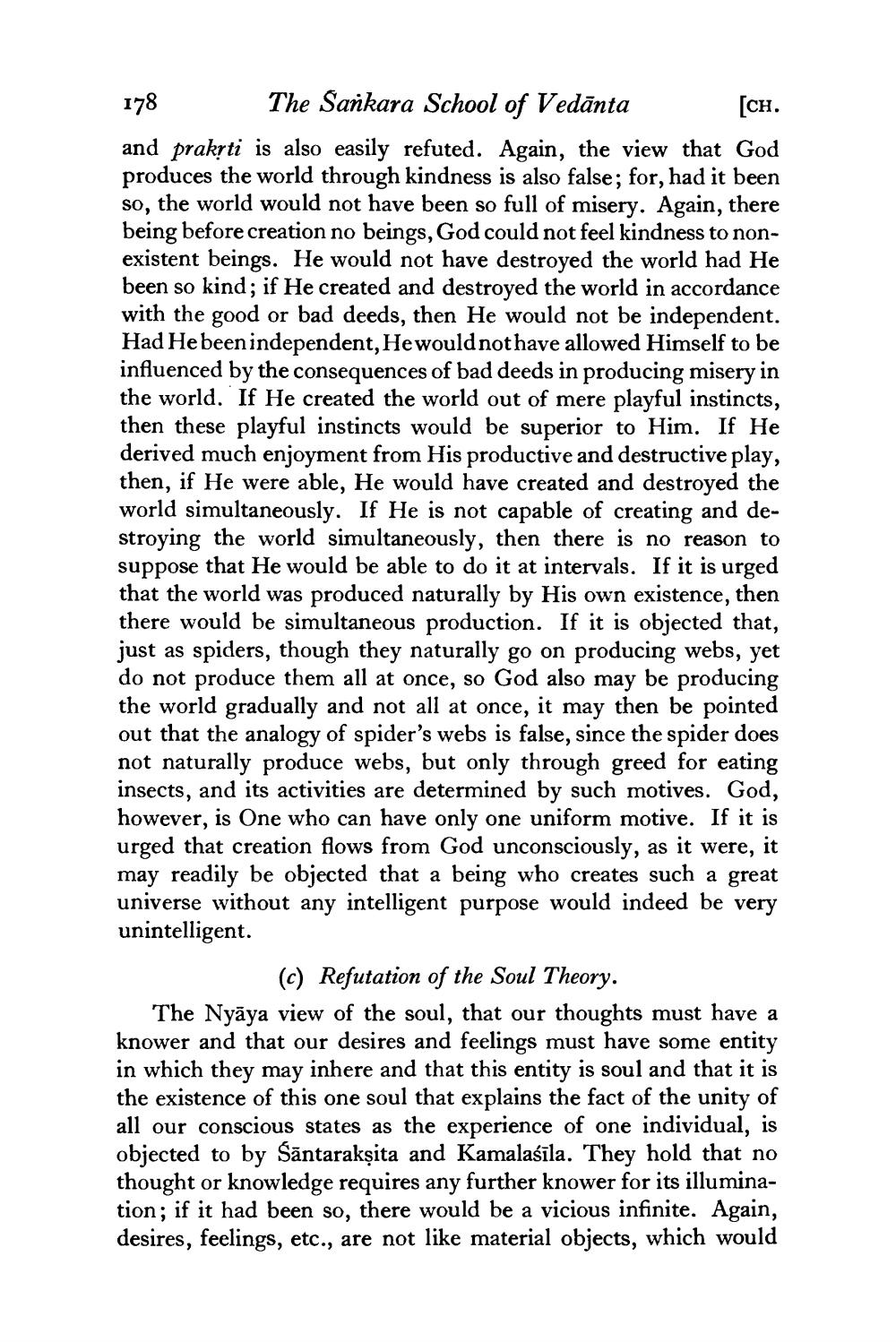________________
[CH.
178 The Sankara School of Vedānta and prakrti is also easily refuted. Again, the view that God produces the world through kindness is also false; for, had it been so, the world would not have been so full of misery. Again, there being before creation no beings, God could not feel kindness to nonexistent beings. He would not have destroyed the world had He been so kind; if He created and destroyed the world in accordance with the good or bad deeds, then He would not be independent. Had He been independent, Hewould not have allowed Himself to be influenced by the consequences of bad deeds in producing misery in the world. If He created the world out of mere playful instincts, then these playful instincts would be superior to Him. If He derived much enjoyment from His productive and destructive play, then, if He were able, He would have created and destroyed the world simultaneously. If He is not capable of creating and destroying the world simultaneously, then there is no reason to suppose that He would be able to do it at intervals. If it is urged that the world was produced naturally by His own existence, then there would be simultaneous production. If it is objected that, just as spiders, though they naturally go on producing webs, yet do not produce them all at once, so God also may be producing the world gradually and not all at once, it may then be pointed out that the analogy of spider's webs is false, since the spider does not naturally produce webs, but only through greed for eating insects, and its activities are determined by such motives. God, however, is One who can have only one uniform motive. If it is urged that creation flows from God unconsciously, as it were, it may readily be objected that a being who creates such a great universe without any intelligent purpose would indeed be very unintelligent.
(c) Refutation of the Soul Theory. The Nyāya view of the soul, that our thoughts must have a knower and that our desires and feelings must have some entity in which they may inhere and that this entity is soul and that it is the existence of this one soul that explains the fact of the unity of all our conscious states as the experience of one individual, is objected to by Sāntarakṣita and Kamalaśīla. They hold that no thought or knowledge requires any further knower for its illumination; if it had been so, there would be a vicious infinite. Again, desires, feelings, etc., are not like material objects, which would




